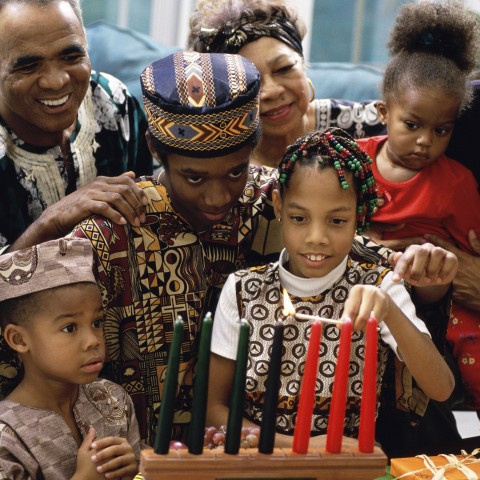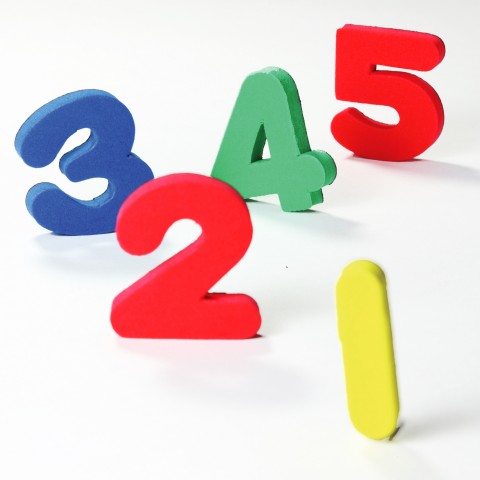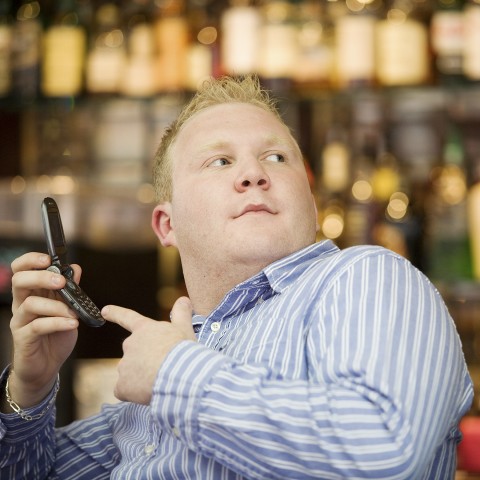
Questions are language constructs we use to elicit information from other people, making them crucial in communication! Knowing stuff helps you navigate your way in this world—every child knows this.
And any parent will tell you that even babies know how to “ask”!
So, if your plan is to connect and communicate with Afrikaners, it’s very important to learn or brush up on the most common Afrikaans questions and answers.
Afrikaners are nice—like the country’s climate, they’re warm and friendly. And they love to chat, especially with new friends! So at AfrikaansPod101.com, we make sure that you master the Afrikaans you need to connect with them.

Learn the most useful Afrikaans questions and answers quickly and easily in this article (and even more when you sign up)! This way, you’ll be able to converse in Afrikaans in no time, and reap all sorts of benefits.
Using Afrikaans questions, and making use of the Afrikaans question word list in this article, will boost your confidence, and can even help you make new friends. Not a bad prospect.
So, let’s not waste time. Get cracking on this list of the top Afrikaans questions and answers!
 Table of Contents
Table of Contents
- Wat is jou naam? / What is your name?
- Waarvandaan is jy? / “Where are you from (originally)?”
- Waar bly jy? / “Where do you live?”
- Waar bly jou familie? / “Where does your family live?”
- Waar werk jy? / “Where do you work?”
- Kan jy Engels praat? / “Can you speak English?”
- Hoe oud is jy? / “How old are you?”
- Wat is jou foonnommer? / “What is your phone number?”
- Wanneer is jou verjaarsdag? / “When is your birthday?”
- Hoeveel kos hierdie? / “How much does this cost?”
- Bonus: Hoe sê mens ___ in Afrikaans? / “How do you say ___ in Afrikaans?”
- AfrikaansPod101 Makes Learning Afrikaans Questions and Answers Super-Easy!
1. Wat is jou naam? / What is your name?

This is a very important question in Afrikaans when introducing yourself and getting to know someone. (Okay, well, it’s important in every language, if you want to get on with people!)
This is a pretty straightforward question, and it’s commonly used in a variety of situations.
However, there are other ways to ask the same thing.
Alternate Ways of Asking
1.1 Hoe heet jy? / “What are you called?” (Roughly translated)
This is an antiquated way to ask for someone’s name. Because this Afrikaans question is related to Dutch, it doesn’t get used that often anymore; when it does get used, it’s usually by older folks.
1.2 Wat kan ek jou noem? / “What can I call you?”
Even in English, this question sounds slightly flirtatious, doesn’t it? But fortunately, there’s nothing improper about it. So, if you need to put an Afrikaans-speaking person at ease, this is a nice phrase to use—with a calm, friendly smile and eye contact, of course.
1.3 Wat is jou volle name, asseblief? / “What are your full names, please?”
This is a phrase used to ask for one’s name and surname, and it’s mostly used in official situations.
Possible Answers
Now, let’s look at some different ways you can answer these Afrikaans questions.
1.4 My naam is Annabel. / “My name is Annabel.”
A straightforward, simple answer, suitable for use in any situation.
1.5 Noem my Annabel. / “Call me Annabel.”
This is a slightly informal response, and it’s good to use if you need to be friendly and engaging.
1.6 Ek heet Annabel. / “I am called Annabel.”
The antiquated response to the antiquated Afrikaans question above (1.2).
1.7 Jy mag my op my naam noem. / “You may call me by my name.”
If someone knows your name and you want to put them at ease, you can tell them this. It indicates that you’re comfortable with a certain level of trust and informality between the two of you.
If you guessed that this can also be the flirtatious, playful (and cheeky!) reply to question 1.3 above, you’d be right!
It could also be a rather facetious response, so better not use it when you’re talking to someone very senior to you (e.g. a police officer, the traffic cop stopping you on the road, or a doctor).
2. Waarvandaan is jy? / “Where are you from (originally)?”
Afrikaans-speaking South Africans are, by nature, inquisitive people who want to know things about your personal history straight away!
Fear not, they’ll be willing to share the same information about themselves. “Open” and “gregarious” are terms that describe Afrikaners well. So, start unpacking your family history already—beginning with one of the most common questions in Afrikaans asked of foreigners!
This Afrikaans question is used interchangeably with another one:
2.1 Waar kom jy vandaan? / “Where do you hail from?”
Most of the time, both questions specifically ask about your place of birth and/or where you grew up.
Possible Answers
2.2 Ek kom van Utrecht af. / “I’m from Utrecht.”
This could imply that you’re still living there, but not necessarily.
2.3 Ek is gebore in Utrecht en het daar grootgeword. / “I was born in Utrecht and grew up there.”
This is a more specific answer that leaves little room for interpretation.
These Afrikaans questions and answers are often confused with the ones directly below, even by locals!
3. Waar bly jy? / “Where do you live?”
Yup, this person wants to know where you’re currently residing. This can mean that they’re asking for the location of your temporary or permanent residence. Depending on the situation and how much you trust the person, answer with as many (or as few) details as you prefer.
Next is a question that’s a bit more informal, and asks for the same information but with more details.
3.1 Wat is jou huisadres? / “What is your home address?”
Have it ready on a piece of paper, in case it’s the taxi driver asking! Or better—learn it by heart. Your address is an important bit of information, no matter which country you’re visiting.
Possible Answers
3.2 Ek bly tans in Kaapstad. / “I currently live in Cape Town.”
Obviously, fill in your own city or town of residence!
Answering question 3.1:
3.3 My woonadres is ___ [e.g. Stay Nice Guest House; Main Straat, 48 Blouberg Strand]. / “My residential address is ___.”
The sample (between brackets) is for a temporary address. Again, fill in your own details. You could add your permanent residential address here, too.
As an aside: Just like in any other country, don’t ditch your gut feeling or the habit of keeping personal information safe when visiting.
South Africans are, as a rule, friendly and helpful people, but charlatans and criminals can live anywhere. So, if someone or something looks or feels too good to be true…well, you know how the saying goes.

4. Waar bly jou familie? / “Where does your family live?”
This question can be asked in official situations, such as at a police station, in a hospital, or by your South African employer. Answer truthfully. And keep in mind that you’ll very likely be asked this in informal situations too, so don’t say you weren’t warned!
Relax, though. Your newly acquired Afrikaans friend is not a plotting serial killer.
They’re showing that they like and want to know more about you. This instant intimacy is a hallmark of the way we roll at the very southern point of Africa.
Answer vaguely if you don’t feel comfortable with this level of info-sharing yet. Don’t worry! Your Afrikaner friend will understand.
That said—just don’t lie, especially if you can see this friendship going somewhere good. Later, you’ll regret not being honest. Truthfulness is an important quality in Afrikaner relationships.
Possible Answers
4.1 My familie bly in Utrecht in Nederland. / “My family lives in Utrecht in the Netherlands.”
Pretty self-explanatory. This can refer to where your birth and/or extended family still resides.
A variation of this answer is:
4.2 My familie is van Utrecht. / “My family hails from Utrecht.”
Like in English, there is a distinction. This means that your family is from that area, but not necessarily living there still.

5. Waar werk jy? / “Where do you work?”
This is very likely something you’ll be asked in both official and social situations. Your answer will probably include the name of a company and a location.
Here’s a similar question:
5.1. Wat doen jy vir ‘n lewe? / “What do you do for a living?”
The difference is nuanced, but, like in English, the answer doesn’t necessarily include the name of your employer.
Possible Answers
5.2 Ek werk vir Vodacom in Kaapstad. / “I work for Vodacom in Cape Town.”
This one is self-explanatory, but keep in mind that it’s the short version. If an official person asks this question, you could include your actual work address. Insert your own employment details, of course.
5.3 Ek is ‘n vliëenier. / “I am a pilot.”
If the conversation is informal, this is all you need to say in reply to question 5.1.
5.4 Ek het my eie besigheid en werk van die huis af. / “I have my own business and I work from home.”
For the entrepreneurs!

6. Kan jy Engels praat? / “Can you speak English?”
A vital question in Afrikaans! Especially if you’ll battle just to understand the replies.
Here’s a variation of this question:
6.1 Praat jy Engels? / “Do you speak English?”
This is a slightly more informal way of asking the same thing. Obviously, replace “English” with the language of your choice.
Possible Answers
6.2 Ek praat Afrikaans. / “I speak Afrikaans.”
This reply will imply that you can speak it rather well.
6.3 Ek praat nie Afrikaans nie. / “I don’t speak Afrikaans.”
This is a handy phrase, especially if you’re in deep-rural South Africa. You’d be more likely to get swift assistance if the native speaker understands that you can’t speak Afrikaans well yet.
6.4 Ek leer nog Afrikaans praat. / “I’m still learning to speak Afrikaans.”
At least you’re trying! Like in most other countries, your effort to learn the natives’ language will be much appreciated, admired, and encouraged.
6.5 Ek praat ‘n bietjie Afrikaans. / “I speak a bit of Afrikaans.”

7. Hoe oud is jy? / “How old are you?”
Uhm, not considered the most polite question in social settings—especially when addressing older women!
We also won’t ask you to divulge your age…unless you look twenty years younger than you are. But then, you’re probably used to getting this question anyway.
On the topic of social etiquette, Afrikaners are pretty down-to-earth, pragmatic, and easy-going people.
So, in our books, there are very few unforgivable social gaffes. These are not even, strictly speaking, social gaffes. It’s your common, garden-variety bad behavior that we frown upon socially.
For instance, don’t hit a child. Nowadays, that’s a crime in South Africa, even if the child is yours. Actually, just don’t hit anyone.
And don’t be rude, selfish, or insulting. This type of behavior lands guests on the other side of the welcome mat—probably on their butt. Most Afrikaners are great at setting boundaries.

You’ll be forgiven many small social sins, especially once we sense that you’re reliable, transparent, and a cool person!
Anyway, take the cue and rather don’t ask this Afrikaans question unless you’re making conversation with one of the kiddos! Then make a fuss of the reply, no matter what.
Possible Answers
7.1 Ek is ___. / “I am ___.”
Insert your age in the blank. (To learn Afrikaans numbers, do visit us at AfrikaansPod101.com. You can learn to count straight away—anywhere and for free!)
The longer version of this reply is:
7.2 Ek is vyf-en-twintig jaar oud. / “I am twenty-five years old.”
Again, just add your own age. Both are commonly used, but the former is the more colloquial reply.
7.3 Ek is vyftig jaar en ses maande oud. / “I’m fifty years and six months old.”
In case you need to be very specific.

8. Wat is jou foonnommer? / “What is your phone number?”
Uncomplicated and self-evident, this question can be used in any situation. You can also ask a simpler question:
8.1 Wat is jou nommer? / “What is your number?”
This will only work if the context is clear, of course.
Possible Answers
8.2 My foonnommer is ___. / “My phone number is ___.”
The short version is:
8.3 My nommer is ___. / “My number is ___.”

9. Wanneer is jou verjaarsdag? / “When is your birthday?”
Like the question about age, we don’t ask this right after learning a person’s name. But it’s not such a sensitive topic, so you won’t be ostracized if you do ask this of your new Afrikaner friend.
And we love birthday parties!
This question, though, should not be confused with:
9.1 Wat is jou geboortedatum? / “What is your birth date?”
The difference should be evident.
Possible Answers
9.2 My verjaarsdag is 22 November. / “My birthday is November 22.”
Just fill in your own birthday.
9.3 My geboortedatum is 22 November, 1969. / “My date of birth is November 22, 1969.”
Answering question 9.1.
9.4 Ek is gebore op 22 November, in 1969. / “I was born on November 22, in 1969.”

10. Hoeveel kos hierdie? / “How much does this cost?”
In South Africa, you can’t haggle in shops; it’s unacceptable. An item’s price is its price, and it’s almost never negotiable. So, you won’t be using this question to quibble about the cost of something. Save that for the casual street markets!
However, it’s good to know this Afrikaans question when the price isn’t evident.
A variation:
9.1 Wat is die prys hiervan? / “What is this thing’s price?”
You can use this in restaurants, for instance, to learn the price of a specific dish. It needs to be clear what you’re referring to, of course.
You can also modify the question by adding: … in Amerikaanse dollars / “…in American dollars.”
Possible Answers
9.2 Dit kos ses-honderd Rand. / “It costs six-hundred Rand.”
The Rand, or ZAR, is South Africa’s monetary unit. This amount will get written like this: R600.
BTW, to learn about Afrikaans money, subscribe to AfrikaansPod101 now for access to a quick lesson!

11. Bonus: Hoe sê mens ___ in Afrikaans? / “How do you say ___ in Afrikaans?”
Insert the English word, or indicate what you mean. This question is especially handy when you first start learning Afrikaans, and you’re going to ask this a lot. Shorten it by leaving out in Afrikaans.
And fear not—we’re patient with students! We’ll translate for you with a smile.
You can also ask:
10.1 Wat is ___ in Afrikaans? / “What is ___ in Afrikaans?”
The difference between the questions should be evident. Choose the one that best fits your situation.
Possible Answers
10.2 Jy sê ___. / “You say ___.”
10.3 Dit is ‘n ___. / “That is a(n) ___.”
10.4 Dit is ‘n ___ in Afrikaans. / “That is a(n) ___ in Afrikaans.”
This is a more elaborate answer. Leave out the article ‘n when you’re not referring to a specific thing.
10.5 Ek weet nie. / “I don’t know.”
Well, sometimes you just don’t.

Well done! If you know these Afrikaans questions and answers by heart, you’re well-equipped to start a conversation.
Are there any other questions and answers in Afrikaans you want to know? Let us have them in the comments!
Before we conclude, here’s the promised list of Afrikaans question words:
| Afrikaans Question Word | English Translation |
| Wie | “Who” |
| Wat | “What” |
| Waar | “Where” |
| Wanneer | “When” |
| Hoekom | “Why” |
12. AfrikaansPod101 Makes Learning Afrikaans Questions and Answers Super-Easy!
Afrikaans, which is closely related to Dutch, is both an easy and challenging language to master. This is especially true if your own language is not Germanic-based.
But don’t fear!
We make it easier for you with our innovative approach to language-learning. Outlined below are just some of the perks you can expect when you enroll:
- Plenty of recorded words, phrases, and conversations in Afrikaans to train your ear and help you with pronunciation.
- Recorded lessons, like this one, about good questions in Afrikaans!
- Plenty of free online tools upon subscription to make your life easier while learning to speak Afrikaans. (Such as, for instance, this free Afrikaans dictionary.)
- Thousands of lessons tailored to meet you at your level of language proficiency, while giving you all you need to help yourself straight away, such as this free list of Afrikaans Key Phrases.
- Several learning options that suit your pocket and your language needs. For instance, fast-track your fluency with access to your own online teacher.
Enroll with AfrikaansPod101.com now for a lifetime membership! You’ll be happy with us—there’s no question about it!










